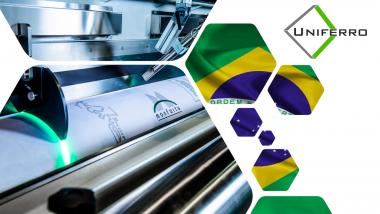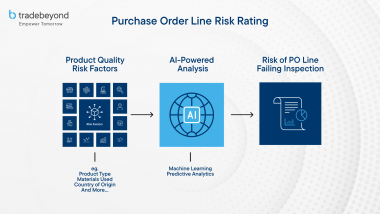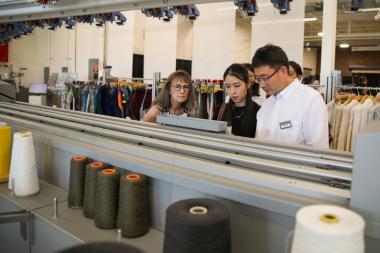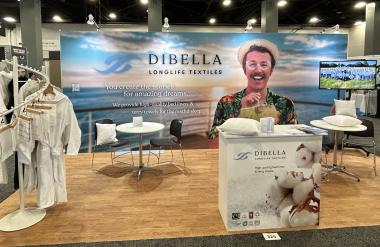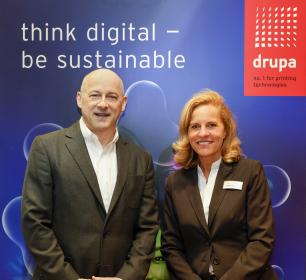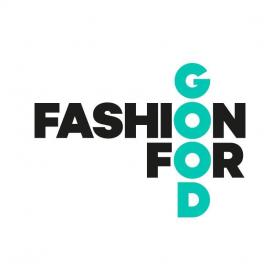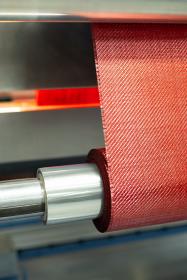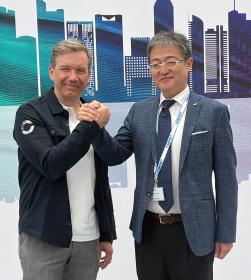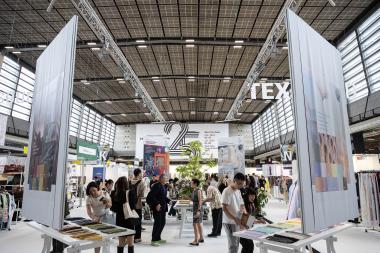Monforts and Uniferro join forces at Febratex 2024
Finishing machinery specialist Monforts will exhibit at the upcoming Febratex textile machinery exhibition taking place in Blumenau, Brazil, from August 20-23, along with Uniferro, its new regional partner.
This new alliance follows the retirement of Herbert Erdmann of the service agency Euro Texteis, who has worked with Monforts over more than 30 years to secure a leading position in the region for Montex stenter dryers, Thermex dyeing ranges and associated finishing technology.
With offices in Sao Paulo and Ceara and sub-agents across Brazil, Uniferro has been active in the textile industry for over 50 years.
coaTTex
At Febratex, Monforts will introduce its latest coaTTex coating unit exclusively dedicated to air knife and knife-over-roller coating. For single-sided application with paste or foam, the versatile coater is suitable for both incorporation into existing finishing ranges as well as installation with new Monforts Montex stenter systems.
A wide range of coatings can be applied to fabrics for providing functions such as waterproofing, liquid and gas protection and breathability, in addition to foam lamination and black-out coating.
Denim hub
Brazil remains a buoyant hub for textile manufacturing with a particular stength in the denim dyeing and finishing sector and many Monforts Thermex hotflue dyeing systems are already operational in the region, reaping the benefits of the Econtrol® process.
Econtrol® is a continuous process for the dyeing of woven cotton and cellulosic fabrics, especially denim, in which reactive dyestuffs are fixed into the fabric in a one-step dyeing and drying process with a controlled combination of steam and air. The entire pad-dry process takes just two-to-three minutes.
“Differentiation is the key in the highly-competitive denim fabrics industry, whether through the successful incorporation of new fibres, accommodating new fabric constructions or exploring the many options for how to treat them at the finishing stage, to gain a market advantage,” says says Monforts Regional Sales Manager Achim Gesser. “Our lines allow users to be extremely versatile and respond quickly to market demand, while also allowing very short production runs.”
Because finishing is a particularly energy-intensive part of the textile production chain, it is exactly where convincing results can be achieved, he adds, and Monforts has developed a wide range of energy-saving. These included a range of heat recovery systems, such as the Universal Energy Tower and the ECO Booster. Both can also be retrofitted to existing ranges to make production more resource-efficient and economical, yet without having to invest in a new machine.
“Energy costs tend to be high in Brazil and can account for up to 70% of production costs for our customers, so there is great demand for ways of saving money,” says Gesser. “Cutting energy usage also helps in terms of global warming and reducing carbon footprint, of course, so these latest technologies are a win-win for fabric finishers. As we look forward to a promising partnership with Uniferro in Brazil, we would like to extend our thanks and best wishes for the future to Herbert Erdmann for his hard work over the years.”
A. Monforts Textilmaschinen GmbH & Co. KG


